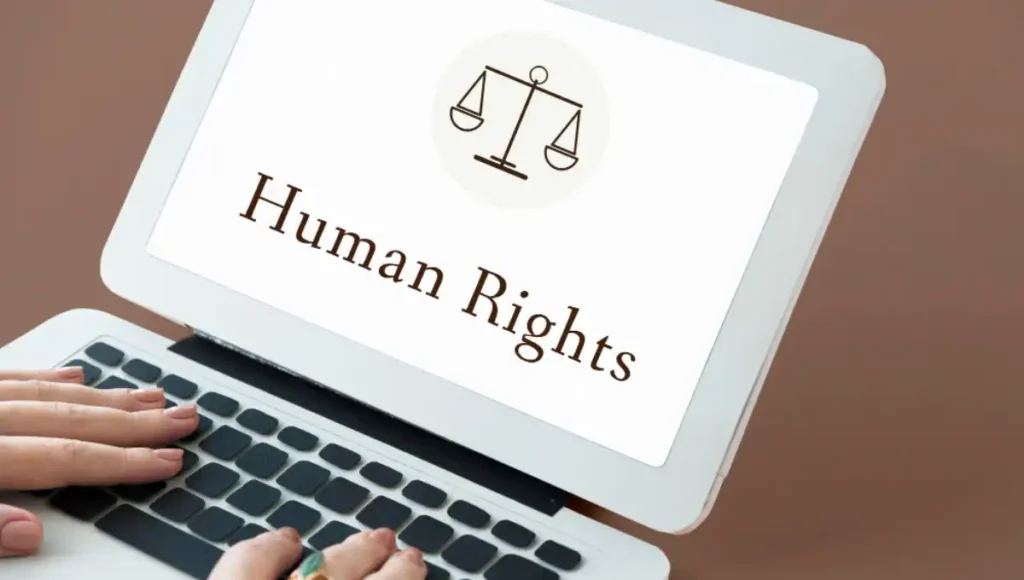Human rights lawyers play a pivotal role in safeguarding dignity, equality, and justice in societies. In Pakistan, where issues like gender discrimination, enforced disappearances, and freedom of expression remain pressing, human rights law offers a powerful tool to drive social change.

This guide explains what human rights law entails, its scope in Pakistan, and how to build a meaningful career in this field.
What is Human Rights Law?
Human rights law refers to the body of international and national laws designed to protect individuals and groups from abuses by governments, institutions, or individuals. In Pakistan, it draws from:
- International frameworks: UN conventions (e.g., Universal Declaration of Human Rights).
- National laws: Articles 8–28 of the Constitution (Fundamental Rights), the Protection of Women Act, and anti-terrorism laws.
Human rights law applies in cases involving discrimination, police brutality, child labor, forced marriages, or violations of freedom of speech. Lawyers in this field advocate for victims, challenge unjust policies, and work with NGOs to promote systemic reforms.
Scope of Human Rights Law in Pakistan
Pakistan’s human rights landscape is complex but evolving. Key areas include:
- Gender Equality: Combatting honor killings, workplace harassment, and unequal access to education.
- Freedom of Religion: Protecting minorities from persecution.
- Accountability: Addressing enforced disappearances and extrajudicial killings.
- Child Rights: Eradicating child labor and ensuring access to education.
Organizations like the Human Rights Commission of Pakistan (HRCP) and Aurat Foundation actively engage lawyers to litigate public interest cases and lobby for policy changes.
Steps to Become a Human Rights Lawyer in Pakistan
1. Complete Your Legal Education
- Intermediate (Pre-Law): Opt for humanities or commerce to build a foundational understanding of societal structures.
- LLB Degree: Enroll in a 5-year LLB program accredited by the Pakistan Bar Council (e.g., University of Punjab, LUMS). Focus on constitutional law, international law, and criminology.
- Specialization: Pursue an LLM in Human Rights Law from institutions like Shaheed Zulfikar Ali Bhutto Institute of Science and Technology.
2. Gain Practical Experience
- Internships: Work with NGOs (e.g., Amnesty International Pakistan), law firms specializing in public interest litigation, or the National Commission for Human Rights.
- Pro Bono Cases: Assist marginalized clients through legal aid clinics to understand grassroots challenges.
3. Become a Licensed Advocate
- Pass the Provincial Bar Exam conducted by your provincial bar council.
- Complete a 6-month pupillage under a senior human rights lawyer.
4. Build Expertise and Networks
- Attend workshops by the Supreme Court of Pakistan or the International Commission of Jurists.
- Collaborate with platforms like Justice Project Pakistan to handle high-impact cases.
What Does a Human Rights Lawyer Do?
- Litigation: Represent victims in courts to secure justice.
- Policy Advocacy: Draft legislation or lobby parliamentarians to reform discriminatory laws.
- Awareness Campaigns: Conduct seminars on rights awareness in rural/urban communities.
- International Reporting: Document violations for UN human rights bodies.
Challenges and Opportunities
While human rights lawyers face risks like political pressure or slow judicial processes, the growing demand for legal accountability creates opportunities. Lawyers can work with international bodies (e.g., UNHCR), and academia, or start their own NGOs.
Learn about the best suit colors for lawyers in Pakistan to make a professional impression.
FAQs:
Q1. How long does it take to become a human rights lawyer?
A: Approximately 6–7 years (5-year LLB + 1–2 years of training and bar exams).
Q2. What skills are essential for this career?
A: Research proficiency, empathy, public speaking, and fluency in Urdu/English.
Q3. Do human rights lawyers earn well in Pakistan?
A: Salaries vary. NGO roles may start at PKR 50,000/month, while private practice income depends on case success.
Q4. Can I work internationally as a Pakistani human rights lawyer?
A: Yes. An LLM from a reputed global university and experience with international law can open doors.
Final Thoughts
Becoming a human rights lawyer in Pakistan demands perseverance but offers unparalleled fulfillment. By understanding the legal frameworks, gaining hands-on experience, and staying resilient, you can contribute to a fairer society.

